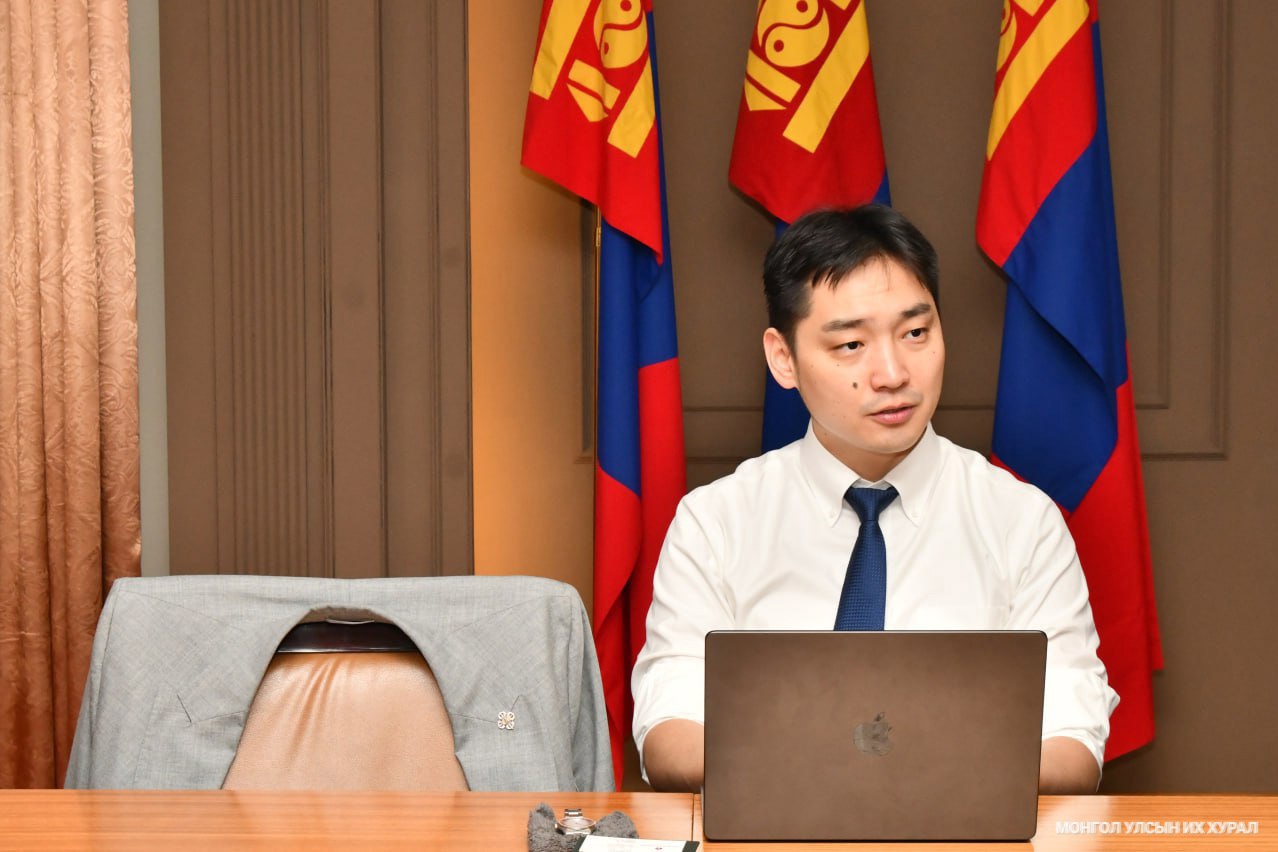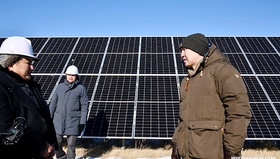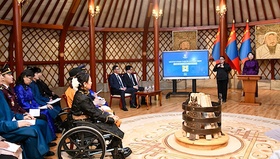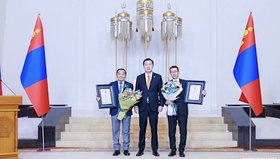Interview with MP G. Luvsanjamts, Chair of the Working Group on Establishing a Green Financing System for Urban Housing
The working group was established by the 2024 Order No. 85 of the Chairman of the State Great Hural (Parliament) with the mandate to propose improvements to the green financing system and legal framework to promote urban housing development. MP G. Luvsanjamts, Chair of the working group, shared insights about their progress.
— How effective has the working group’s activity been so far?
Our working group was formed with the goal of developing a State Great Hural resolution that proposes optimal ways to establish a green financing system and direct state policy to reduce air pollution and smog, not only in the capital Ulaanbaatar but also in provincial centers and rural areas.
Since the autumn session of the State Great Hural in 2024, we have held seven official meetings and over ten informal discussions and consultations. To ensure balanced participation, we engaged a wide range of stakeholders, including representatives from government and private sectors, banks and financial institutions issuing green loans, experts, construction industry representatives, manufacturers of energy-efficient products, relevant ministries, international organizations running anti-pollution projects, and citizen groups. The results of our work will be finalized at the next working group meeting.
— What kinds of recommendations have come out of these consultations?
Past government actions mainly supported consumption-driven policies. However, the most effective and economically beneficial solution to significantly reduce air pollution is to support energy savings. Therefore, the draft resolution we are preparing includes many measures such as providing tax incentives for households who insulate their homes, extending green loan terms up to 60 months, and increasing subsidies on green loan interest rates. Fundamentally, we aim to establish a comprehensive policy built on three pillars: demand, supply, and quality. Thus, we are laying the foundation for a new policy that supports savings rather than consumption, and have launched the “DULAANBAATAR” campaign.
— Could you tell us more about this campaign?
Our working group started the “DULAANBAATAR” campaign under the slogan “Let’s insulate before winter.” The campaign aims to raise awareness among households about the importance and benefits of insulation, linking this to green loan financing by providing practical advice and recommendations.
The name “DULAANBAATAR” symbolizes every insulated home becoming a “heat hero,” capable of enduring winter cold without hardship. The regulations for green loans and tax incentives will apply not only to residents of the capital but also to those in local areas. We all need to understand that insulation is the most crucial and effective solution to reduce air pollution.
— Have you conducted studies on how home insulation affects air quality and smog reduction?
We have collaborated with several professionals who conduct scientific research on air pollution reduction to carry out necessary studies and calculations. Our research shows that if insulation efforts are successfully implemented nationwide by 2028, air pollution could decrease by more than 50%.
For example, the CHIP package for insulation, heating, and ventilation of Mongolian gers (traditional yurts) shows promising results. A household typically spends about 180,000 to 200,000 MNT per month on improved fuel and heating. Insulating the ger with a package costing about 3 million MNT increases electricity expenses for heaters to roughly 300,000 MNT monthly due to the exclusion of electric heaters from night-time tariff discounts. Nevertheless, families who switched to electric heating reported a sharp decline in children’s illnesses and a significant improvement in quality of life during community consultations.
Surveys among users of the CHIP package show that 90% noticed improved indoor air quality, 89% reported positive health effects, and 66% observed reduced waste related to heating. Researchers concluded that each household saves on average four tons of coal and firewood annually, contributing to lower air pollution and greenhouse gas emissions.
Moreover, under the “Warm Solutions” project implemented by the GERES international organization, 168 insulation teams have been trained for ger areas, with 96% of households expressing satisfaction with the insulation work — a good example to follow. We also plan to broaden the application of night-time tariff discounts to various heating solutions.
— How is tax support included in your plans?
In the draft tax package, we proposed that individuals who insulate their homes and achieve energy savings be eligible for a tax refund of up to 15 million MNT from personal income tax.

 Eng
Eng  Монгол
Монгол


